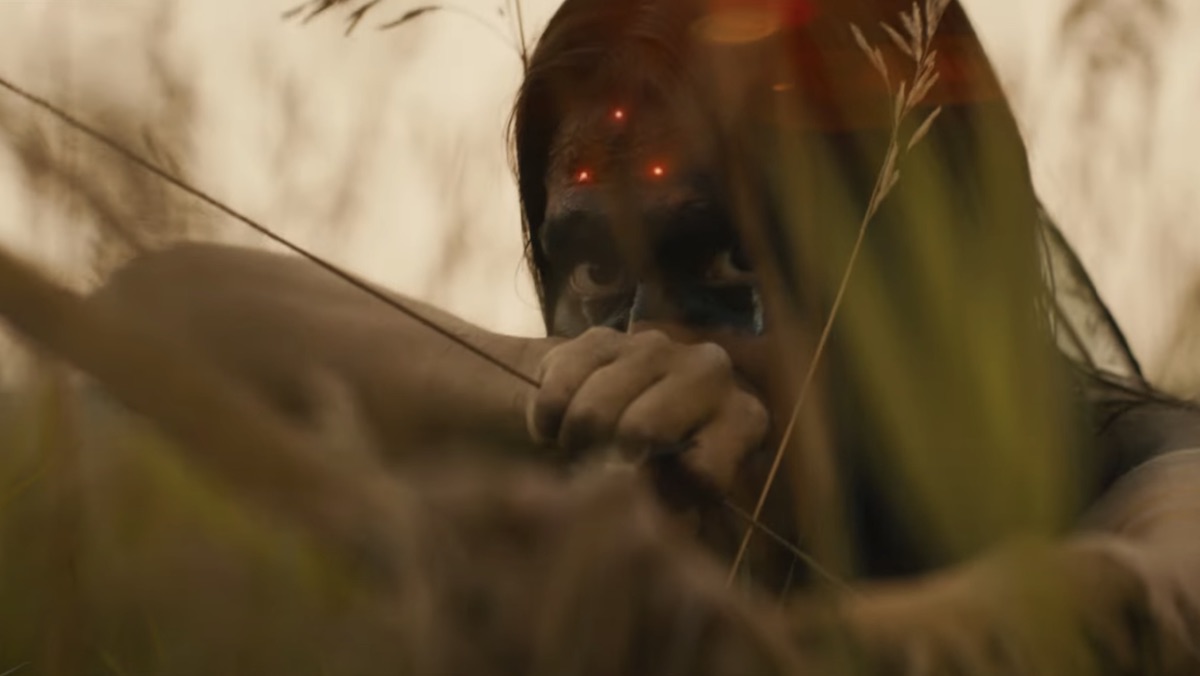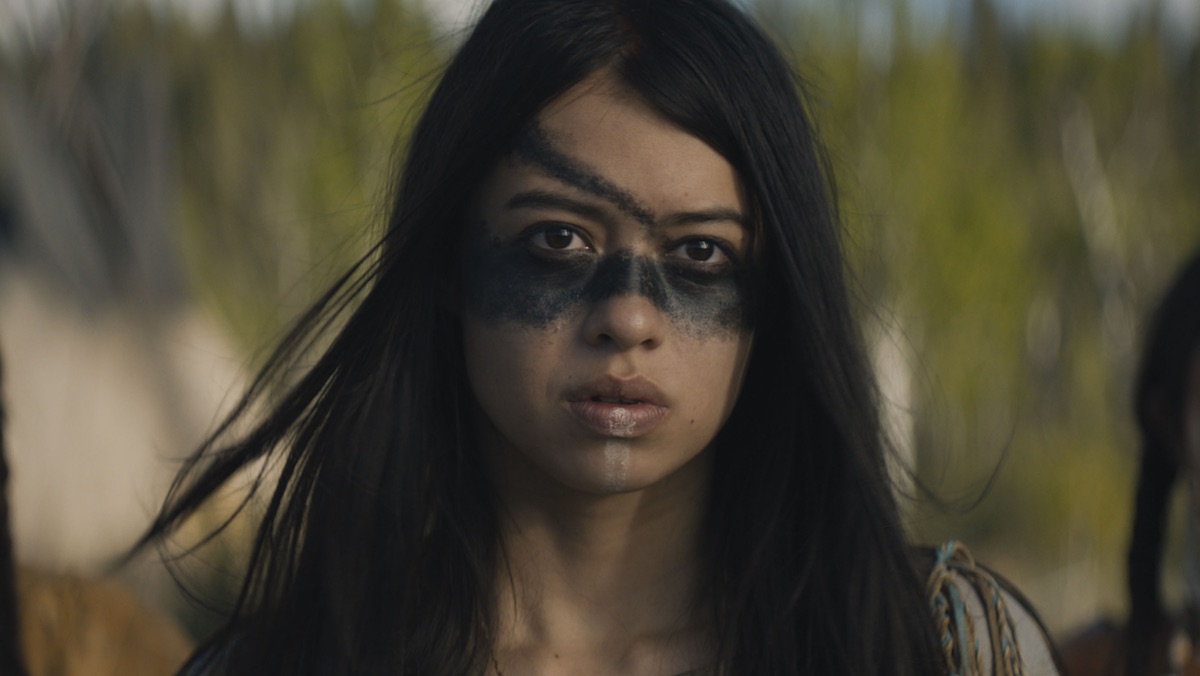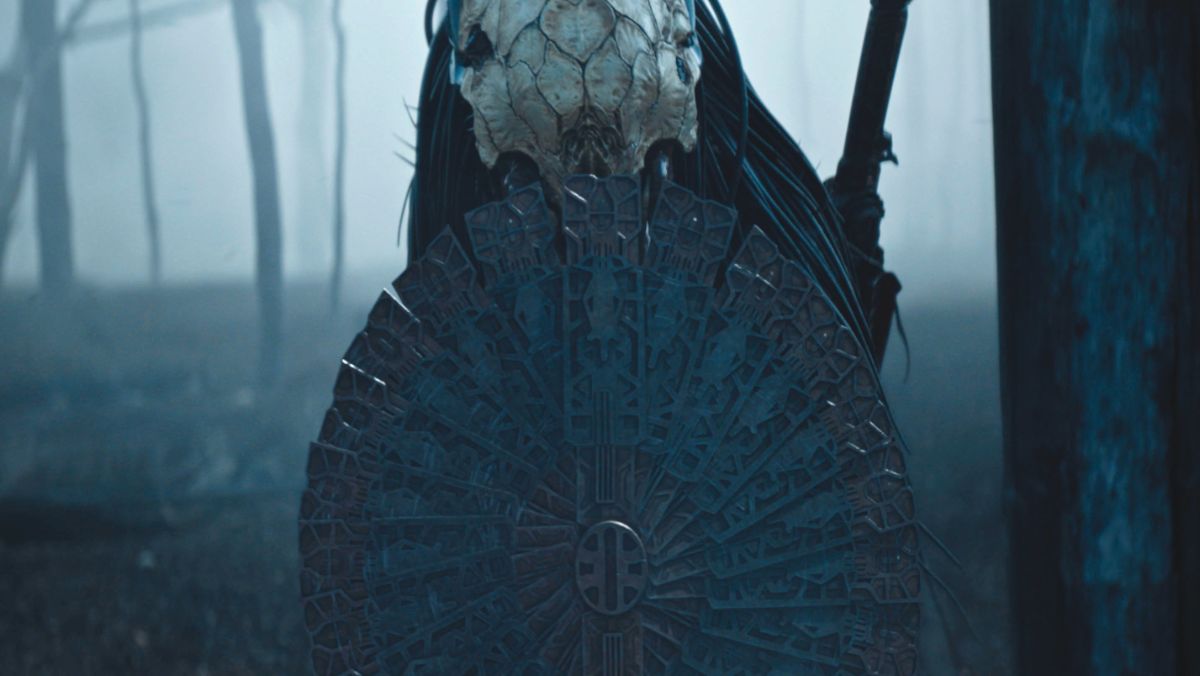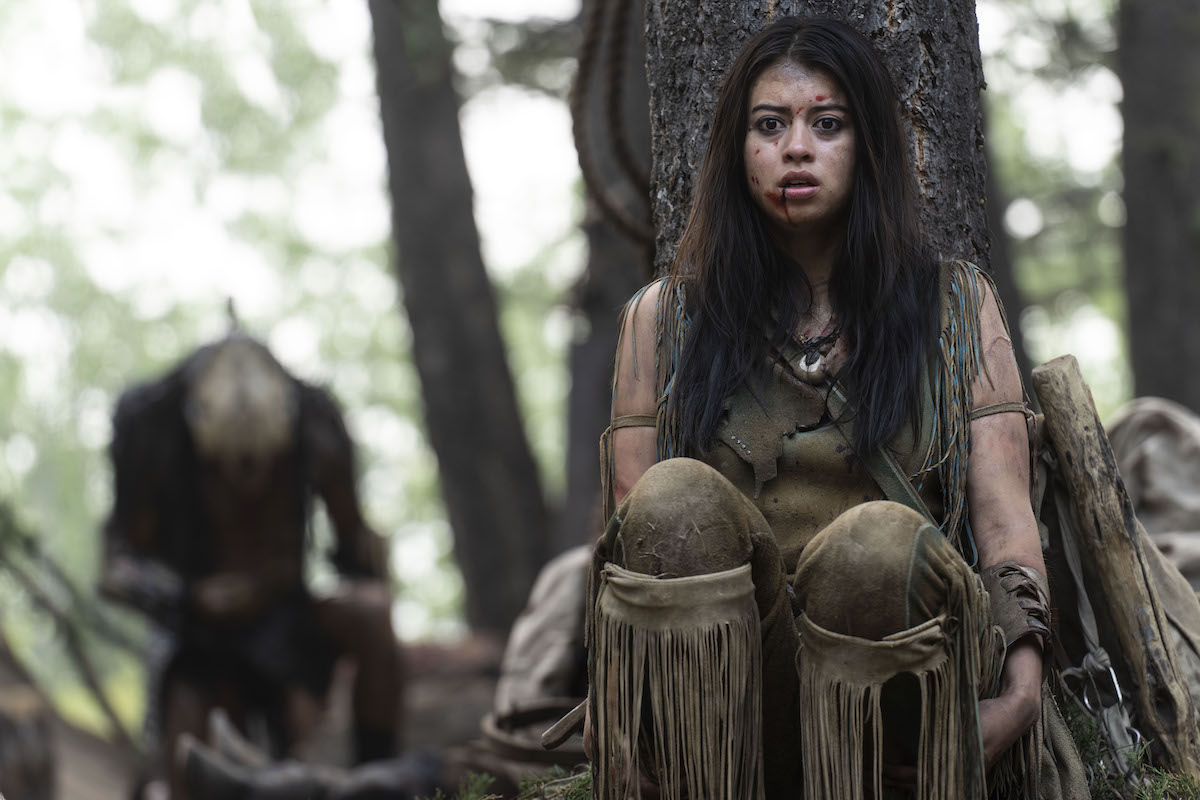There will be two groups of people who care enough to read a Prey review before the movie debuts. The first will consist of longtime Predator fans who care deeply about how the film contributes to the franchise’s legacy. The other will just be people trying to figure out if a story about a Comanche Nation warrior fighting a technologically advanced alien is worth their time. But the good news is that it doesn’t matter which category you fall in. Prey works whether you’re a Predator fanatic or not. It’s entertaining, looks great, has something to say, and pays homage to its predecessors in the best ways. The only real knock against the movie has nothing to do with the film itself. The biggest issue is that we won’t get a chance to see it where it truly belongs – on the biggest screen possible.
Prey really does look like it took place 300 years ago. Director Dan Trachtenberg (10 Cloverfield Lane) uses wide bucolic shots and natural settings to convey both the beauty and perils of North America’s wilderness in 1719. But he does so without making the movie feel like a nature doc occasionally interrupted by an alien invasion story. (He also avoids the modern issue of making everything too dark. You can actually see this movie, even during night scenes.) This is absolutely a Predator movie. The plot drives the film, because Prey understands what it is at its core. This is a focused and compelling story about hunters and their game.
It’s also a feminist story, which will anger the worst people before they even see it. And that sexist attitude—also one of the movie’s main themes—will be especially ironic coming from those who love the franchise. Prey is never heavy-handed nor preachy. It lets its action speak for itself by deftly using well-established Predator lore to explore misogyny and how it blinds men (and aliens) to threats they otherwise dismiss. It’s a fresh story that stays true to the franchise. Writer Patrick Aison clearly knows and loves what makes a good Predator movie.

That affection for the series also comes across thanks to a series of callbacks to previous films, most notably the original 1987 film. Like its themes, though, the movie doesn’t force any of them on the audience. They fit naturally fit into Prey‘s story. Hardcore fans will recognize familiar moments immediately, but newcomers won’t feel like they’re missing out on anything. Easter eggs aren’t included for the sake of having them. They’re here because they make sense and belong in the movie.
But the movie wouldn’t work if its star, Amber Midthunde, wasn’t as good as she is. Her Comanche warrior Naru is out to prove to both herself and to her tribe she is more than what they think and expect her to be. She has a well-earned chip on her shoulder. That makes her both empathetic and imposing, just as she’s both vulnerable and strong. She’s also wise, but her determination constantly puts her harm’s way, because her greatest assets are her greatest weaknesses. That all makes for a compelling character worth caring for, and Midthunde pulls it all off.

I didn’t even realize how much I cared about Naru until the final scene. I was so into the story, which features some fantastic fight sequences with men, animals, and the Predator, that I didn’t recognize how much I personally cared about its main character’s own arc. This film is always moving forward. There’s always something to hunt or escape. And with a runtime under one hour and forty minutes, there wasn’t a lot of opportunity to reflect on how I felt about the character. Like with nearly everything in this film—from plot points and characterization, to themes and references—even my reaction to the ending came naturally.
Even when the movie is clearly having a lot of fun putting the Predator into the middle of a fight—which in a couple of instances included laugh out loud moments—it’s never hammy or clumsy. (That’s helped by how good the Predator looks.)

The only choice the movie makes that is debatable is the decision to have its Comanche characters speak in English. There’s a legitimate argument—which has nothing to do with some people hating subtitles—for why this was the right approach. There’s so much to look at, both in terms of setting and action, that subtitles might make you miss something you don’t want to. But the movie is of such a place, time, and people, I would have sacrificed a few seconds of attention here and there to keep the film’s authenticity entirely in place. I got used to the character’s speaking English eventually, so it’s not an impediment to enjoying it even if you agree with me. I just would have preferred to hear the Comanche’s native language instead.
(There’s one huge caveat to English not being a deal breaker. In one scene a minor character uses way-too-modern lingo before going to the bathroom. It was the only thing in the whole movie that felt out of place.)

The one issue with the movie that is not debatable has nothing to do with Prey itself. It has to do with Disney’s decision to release it on Hulu. Trachtenberg clearly made his film to be enjoyed on the biggest screen possible. And the Mouse House should have at least given moviegoers the option to see it that way. A dual release wouldn’t prevent anyone from seeing it safely or in their preferred format.
Prey is a really fun movie with fantastic visuals, a great leading performance, an interesting and authentic setting, wildly entertaining fight scenes, excellent writing, and an obvious love for all things Predator. It was also designed for the biggest screen possible. So while it certainly doesn’t need to be seen that way to appreciate it, viewers should have had that chance.
And that’s true whether you read this because you love the franchise or not.
Mikey Walsh is a staff writer at Nerdist. You can follow him on Twitter at @burgermike. And also anywhere someone is ranking the Targaryen kings.
